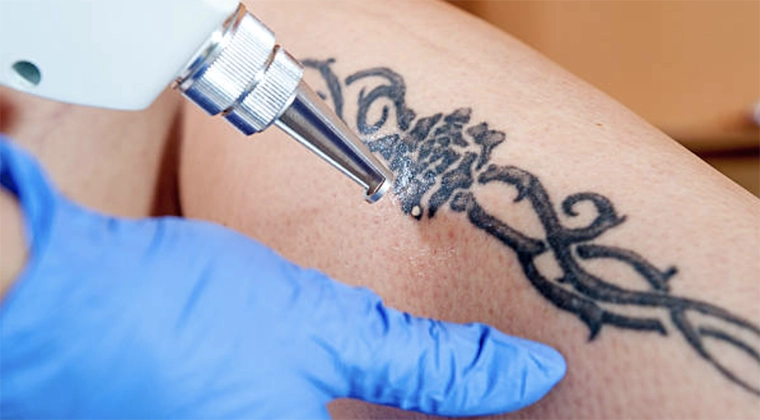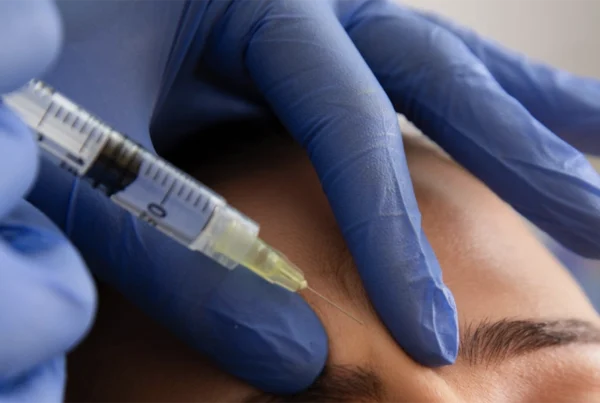In today’s diverse professional landscape, tattoos have become an increasingly common form of self-expression. Once relegated to the fringes of society, tattoos are now seen adorning the arms, necks, and even hands of professionals across various industries. But despite this shift towards greater acceptance, the debate over tattoos in the workplace continues to rage. For some, tattoos are a testament to individuality and personal history. For others, they remain a potential career liability. This dichotomy leads many to ponder the impact of their ink on professional opportunities, and in some cases, to consider tattoo removal as a means to advance their careers. This article explores the intersection of tattoos and professional life, examining how ink affects career choices and the growing trend of tattoo removal among professionals.
The Growing Popularity of Tattoos
Historical Context
Tattoos have a rich and varied history, dating back thousands of years. In many ancient cultures, tattoos were used to signify rites of passage, status, and achievements. From the intricate body art of Polynesian tribes to the symbolic tattoos of ancient Egyptians, ink has long been a powerful form of personal and cultural expression. However, in more recent history, particularly in Western societies, tattoos have often been associated with rebellion and counter-culture. This perception began to shift in the late 20th century, as celebrities and public figures proudly displayed their ink, helping to normalize tattoos in mainstream culture.
Modern Tattoo Trends
Today, tattoos are more popular than ever. A 2019 study found that nearly 40% of Americans aged 18-29 have at least one tattoo. The prevalence of tattoos isn’t limited to any one demographic; people from all walks of life, including professionals, are getting inked. In creative industries like fashion, media, and the arts, tattoos are often seen as a mark of creativity and individuality. However, even in traditionally conservative fields such as law and finance, tattoos are becoming more common. This widespread acceptance, however, does not necessarily translate into universal acceptance in all professional settings, leading to a complex dynamic between personal expression and career advancement.
Professional Perceptions of Tattoos
Employer Attitudes
While societal views on tattoos have become more accepting, employer attitudes can vary significantly. Many organizations still hold traditional views regarding professional appearance, where visible tattoos are frowned upon. A 2018 survey revealed that 76% of respondents felt that tattoos hurt an applicant’s chances of being hired. This is particularly true in customer-facing roles where companies believe that a professional image directly impacts their brand reputation. Companies with strict dress codes or conservative corporate cultures may require employees to cover their tattoos or may even have policies against hiring individuals with visible ink.
Industry-Specific Norms
The acceptance of tattoos can vary widely between industries. In creative fields such as graphic design, music, and entertainment, tattoos are often embraced as part of the culture. They are seen as a form of self-expression and artistic flair. Conversely, in more conservative industries like banking, law, and corporate business, tattoos can still be perceived as unprofessional or distracting. This discrepancy means that professionals must carefully consider the norms and expectations of their industry when deciding to get a tattoo or when contemplating its removal.
The Decision to Remove Tattoos
Motivations for Tattoo Removal
The decision to remove a tattoo is deeply personal and can be influenced by various factors. Career advancement is a significant motivator for many individuals. As professionals climb the corporate ladder, they may find that their youthful expressions of rebellion are no longer congruent with their desired professional image. Additionally, individuals may seek tattoo removal due to changes in personal beliefs or regret over impulsive decisions made in their youth. Personal stories abound of individuals who have undergone tattoo removal to align their appearance with their evolving identity or to meet the expectations of their professional environment.
Tattoo Removal Methods
Tattoo removal technology has advanced significantly in recent years, offering several methods to suit different needs and budgets. Laser removal is the most popular technique, using high-intensity light beams to break down the ink particles in the skin. This method is effective but can require multiple sessions and can be painful. Other methods include dermabrasion, which involves sanding down the skin, and surgical excision, where the tattooed skin is surgically removed. Each method has its pros and cons, and the choice often depends on factors such as the size, color, and location of the tattoo, as well as the individual’s skin type and pain tolerance. For those in Sydney, options for tattoo removal Sydney provide various advanced techniques tailored to individual needs.
Impact of Tattoo Removal on Career Opportunities
Case Studies
Numerous case studies highlight the positive impact of tattoo removal on career opportunities. For instance, professionals in fields with strict dress codes, such as law enforcement or corporate finance, have reported increased job prospects and promotions post-removal. One such example is a young lawyer who removed a prominent neck tattoo to improve his chances of making partner at his firm. Similarly, a teacher with visible arm tattoos found that removal not only improved her professional image but also positively influenced her interactions with parents and colleagues. These examples underscore the potential career benefits of removing tattoos, particularly in industries where professional appearance is paramount.
Psychological and Social Benefits
The benefits of tattoo removal extend beyond career opportunities. Many individuals report a significant boost in self-esteem and confidence after removing a tattoo that no longer aligns with their identity. This psychological uplift can translate into better job performance and more positive interactions with colleagues and clients. Moreover, the social stigma associated with tattoos in certain professional settings can be alleviated through removal, leading to a more inclusive and accepting workplace environment. The decision to remove a tattoo is often a step towards reconciling one’s personal and professional identities, fostering a sense of authenticity and empowerment.
Balancing Personal Expression and Professionalism
Navigating Professional Environments with Tattoos
For those who choose to keep their tattoos, navigating professional environments can require a strategic approach. Choosing tattoo placements that can be easily concealed by work attire is one way to balance personal expression with professional expectations. Additionally, opting for designs that hold personal significance rather than overtly controversial imagery can help mitigate potential negative perceptions. Professionals with visible tattoos can also proactively address their ink during job interviews or performance reviews, framing their tattoos as a testament to their creativity and individuality.
Future Trends and Acceptance
Looking ahead, the future of tattoos in professional settings appears promising. As younger, more tattoo-friendly generations ascend to leadership positions, workplace norms are likely to evolve. Companies are increasingly recognizing the value of diversity and inclusion, which extends to accepting various forms of personal expression, including tattoos. The push for more inclusive workplaces, coupled with changing societal attitudes, suggests that tattoos will become even more commonplace and accepted in professional environments. This shift will require both employers and employees to navigate new standards of professionalism that embrace individuality while maintaining a cohesive corporate image.
Conclusion
The interplay between tattoos and career choices is a dynamic and evolving narrative. While tattoos have gained significant acceptance in modern society, their impact on professional life remains nuanced. For some, tattoos are a proud declaration of identity; for others, they pose a potential barrier to career advancement. The decision to remove a tattoo is deeply personal, driven by a desire to align one’s appearance with professional aspirations. As workplace norms continue to shift towards greater acceptance and inclusion, the future of tattoos in professional settings looks promising. Ultimately, whether one chooses to keep or remove their tattoos, the key lies in finding a balance between personal expression and professional image, fostering an environment where individuality is celebrated, and professional growth is unhindered.







